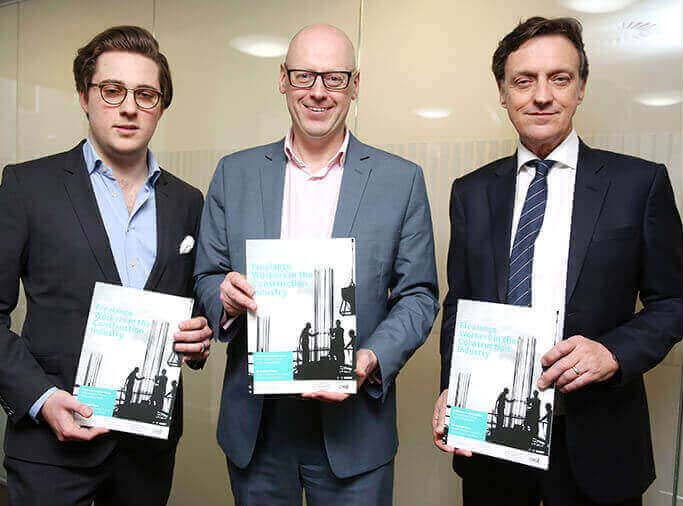14th January 2019 | David Jackson
You remember Ed Miliband, the man whose appetite for a bacon sandwich helped cost him the chance to become Prime Minister. I saw him on TV the other day, and it turns out the ex-Labour Party leader is now part of a cross-party Shelter Housing Commission, which has just come to the conclusion that the UK needs three million new homes to be built over the next twenty years.
The Commission recommends ‘a historic renewal of social housing’ – or council houses as they used to be called – which works out at 150,000 units a year and would presumably be over and above the Government’s current target of building 300,000 new homes a year.
Meanwhile, another arm of government, the Department of Business, Energy and Industrial Strategy, has been focusing on post-Brexit productivity. Apparently, construction output, along with most other sectors, is not what it could be. There needs to be more output for the pound invested, or a greater return for that investment, they say.
But contrast this with Matthew Taylor’s recently published report on the exploitation of workers in the so-called gig economy.
Focusing on Uber drivers, Deliveroo cyclists and the like, the government has accepted in principle that gig workers should fall into a special employment status category, giving them rights currently restricted to those on PAYE, such as holiday and sick pay.
While there is no suggestion – thus far – that construction subbies are part of the gig economy, there are plenty of freelance drivers and cyclists who have opted to become self-employed. Just like their counterparts in construction, they enjoy the flexibility to work when they please, earn more in times of high demand, and take time off when they please.
Will additional entitlements leave the self-employed worse off . . . to the detriment of all?
What’s going to happen when they additionally become entitled to holiday and sick pay? Is it a good idea? Something the freelancers will be celebrating?
Well, you can rest assured Deliveroo and Uber will look to their customers to foot the extra cost of workers’ rights . . . which is likely to reduce demand for takeaway food and trips across town . . . which will reduce demand for drivers and couriers . . . which will – guess what? – lead to lower earnings for those who are self-employed.
My point here is that we have two groups of politicians demanding, ‘Turn the wick up and build more,’ while another arm of government is simultaneously saying, ‘Let’s give all the freelancers some workers’ rights, or have them all employed with someone.’
It’s no exaggeration to say there continues to be a degree of hostility towards labour-only subbies in certain political circles and trade unions.
But there’s also an alarming absence of joined-up thinking.
Freelance construction workers are an essential necessity if the country is ever to meet the Government’s housing targets alone – and that’s before you even consider the fresh call to add an extra three million social housing units to the wish list.
As those of us in construction know so well, the flexibility offered by freelance builders benefits not only our own sector, but the UK economy as a whole. So surely, the government should be doing everything in its power to encourage and assist those who want to be legitimately self-employed in all sectors. That way lies the path to prosperity, not just when it comes to house building but across the entire economic spectrum.
To achieve this, we need our politicians and their civil servants to show common sense, which – looking at the dog’s breakfast they have made of Brexit – seems to be in short supply. I’m not holding my breath . . .

Value Freelance Builders
The latest version of this key report highlights how freelance builders play a crucial and unrivalled role in boosting economic efficiency and productivity in the construction sector.
Plus debunks the myth that freelancers in the construction industry are exploited.




